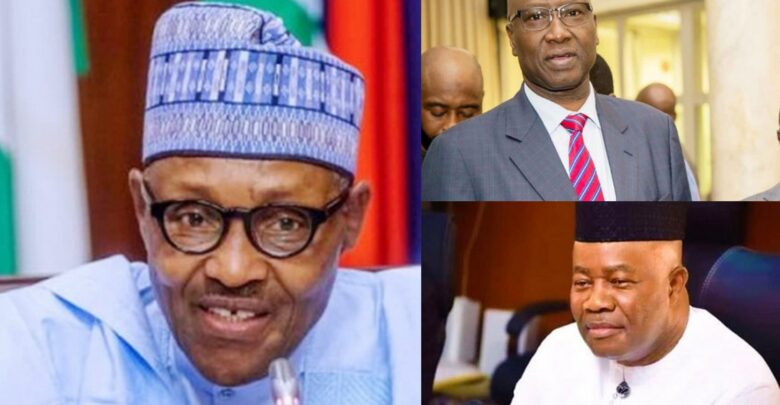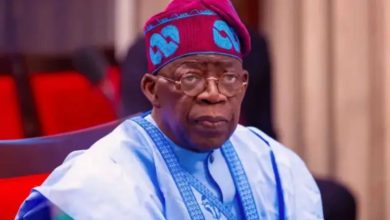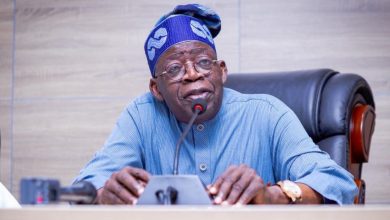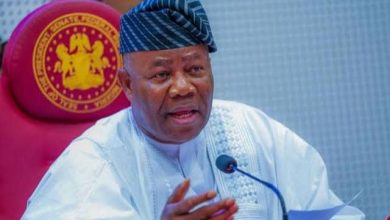Who Rightly Should Supervise The NDDC?

One ancillary accusation levelled against the minister of Niger Delta Affairs, Sen. Godswill Akpabio, at the ongoing investigative panel hearing on allegations of misappropriation in the Niger Delta Development Commission (NDDC), courtesy of the House of Representatives Committee on NDDC, was that he intermeddles too deeply into the affairs of the Commission in a way and manner that went beyond the limits of supervision.
Of course, three landmark initiatives by the Presidency almost immediately following the appointment of Senator Akpabio as a minister on Wednesday, August 21, 2019, were hints that there will be a forensic audit of the NDDC from 2010 to 2019; redeployment of the NDDC to the Ministry of Niger Delta Affairs; and formation of an Interim Management Committee (IMC) with initial lifespan of six months to, in the explanation by the Presidency, spearhead the forensic audit.
During his Independence broadcast on October 1, 2019, President Muhammadu Buhari announced the redeployment of the NDDC from of Office of the Secretary to Government of the Federation (SGF) to the Ministry of Niger Delta for statutory supervision. Excerpts from the speech read: “The recent redeployment of Niger Delta Development Commission from the Office of the Secretary to the Government of the Federation, to the Ministry of Niger Delta Affairs underscores our commitment to enhance the living standards of communities in the Niger Delta, through coordinated and appropriate programmes”.
There were divided opinions on the President’s decision. Critics severely questioned and condemned the motives, seeing in it a political stratagem to give enormous power to whoever will occupy the office of minister to benefit massively from the huge budgets of the NDDC and associated goodies. Others, on the other hand, extensively commended the President for what they described as discreet and timely in fast-forwarding developments in the Niger Delta.
Perhaps not many knew that the step taken by the President over this matter was not as fresh as it looked. The immediate-past minister of Niger Delta Affairs, Mr. Usani Uguru Usani, had written to the President making a request that supervision of the NDDC be transferred or annexed to the Ministry of Niger Delta Affairs. According to available record, the ministry was given supervisory powers over the NDDC in 2016 following negotiations between a pressure group in the Niger Delta, United Niger Delta Energy Development Security Strategy (UNDEDSS) and the Federal Government, represented by the late chief of staff to the President, Abba Kyari, and former director-general of the Department of State Services (DSS), Lawal Daura.
Related: Latest Development In NDDC: Is Sen. Akpabio As ‘Guilty’ As Assumed?
Contrary to entitled disparate imaginations and opinions of naïve and gullible sections of the public, some of which were cosmetics to titivate conspiracy theories, the idea of the transfer of supervision scarcely could have been Akpabio’s. It was only a coincidence that the President chose or decided to take that step during Akpabio’s nascent tenure as a minister. However, there was a subtle connection between the then chief of staff and the Sen. Akpabio. Having been appointed a minister about two weeks earlier, some sources however referred to a restricted letter earlier written to Akpabio by Mr. Abba Kyari, September 2, 2019, informing him of the imminent development.
Moreover, supposedly on behalf of the President, Sen. Godswill Akpabio also inaugurated a three-man Interim Management Committee on Tuesday, October 29, 2019, in Abuja. The Committee comprised acting managing director, Dr, Joi Nunieh (Rivers), acting executive director, Projects, Dr, Cairo Ojougbor (Delta); and acting executive director, Finance/ Administration, late Chief Ibanga Bassey Etang. The then acting managing director, Dr. Akwagaga Enyia, had on October 30, 2019 handed over to Dr. Nunieh.
The National Assembly, that felt outsmarted, refused to endorse the idea they described as a farce and impingement on the law establishing the NDDC. Ever since these avant-garde modalities or changes, the NDDC appears to have known no real peace, as it has had to face, on daily basis, a barrage of distracting arguments and shocking revelations of financial impropriety by past and present leadership.
To the contrary, nothing or little was debated about where the NDDC rightly should belong. Subject to further interpretations, as could be deduced from his statements during the investigative hearing, Akpabio must have seen in the situation a window to oversee practically all activities in the NDDC, including operations, finance and contract awards, etc.
Related: Akpabio’s Forensic Audit And Etang’s Demise
THE LAW’S PERSPECTIVE: Beyond these arguments, where does the law say the supervisory role of the NDDC should reside? The Niger Delta Development Commission (Establishment, etc.) 2000 Act, Part II, under Functions and Powers of the Commission, sub-section 3, states: “The Commission shall be subject to the direction, control or supervision in the performance of its functions under this Act by the President, Commander-in-Chief of the Armed Forces of Nigeria”.
Part VI under Miscellaneous (23), also states, “Subject to the provisions of this Act, the President, Commander-in-Chief of the Armed Forces may give to the Commission directives of a general nature or relating generally to matters of policy with regard to the performance by the Commission of its functions and it shall be the duty of the Commission to comply with the directives”.
However, a preamble to the creation of the Ministry of Niger Delta indicates: The new ministry will have a minister in charge of the development of the Niger Delta area, and a minister of state in charge of youth development. The existing Niger Delta Development Commission was to become a parastatal under the ministry. Under the Policy Focus of the Ministry of Niger Delta Affairs, wherein functions are spelt out, one of the functions is that the ministry shall “oversee the implementation of government policies on the development and security of the Niger Delta Region.
Part 1 (1) Establishment, etc of the Niger Delta Development Commission and the Governing Board, also states, “There is hereby established a body to be known as Niger Delta Development Commission (in this Act referred to as “the Commission”). 1 (8) states: “The Board shall have power to (a) manage and supervise affairs of the Commission (b) make rules and regulations for carrying out the functions of the Commission (c) enter and inspect premises, projects at such places as may be necessary for the purposes of carrying out its functions under this Act….(d) do such other things as are necessary and expedient for the efficient performance of the functions of the Commission.
Whereas the President, by law, expediency and discretion, can and has exercised his prerogative on where or whose responsibility it should be to supervise the NDDC, even temporarily – Ministry of Niger Delta Affairs or Office of Secretary to Government of the Federation – analysts and members of the National Assembly have argued that the responsibility of supervision squarely rests on the shoulders of properly constituted and inaugurated Board of the NDDC. They have argued that the creation of the Interim Management Committee (IMC) was an aberration, illegality, and therefore declared it a nullity and resolutely and initially refused to associate with it. That stand-off adversely affected the 2019/2020 passage of the NDDC budget.
But that resistance did not last long. In a show of imperial power, the President had, in a statement made on his behalf by the special adviser on media and publicity to the President, Mr. Femi Adesina, Thursday, December 19, 2019, expressed an irrevocable order that every argument for or against the Dr. Joi Nunieh-led IMC be suspended, even as he equally suspended the newly conformed Odubu-led NDDC Board.
The original 16-member, as constituted, screened and confirmed by the Senate included former deputy governor to former governor of Edo State, Adams Oshiomhole, Dr. Pius Odubu as chairman; Bernard Okumagba (Delta State), managing director; and Otobong Ndem (Akwa Ibom State), executive director, Projects; and Maxwell Okoh (Bayelsa), finance and administration.
Others on the list are Jones Erue (Delta); Victor Ekhatar (Edo); and Joy Nunieh (Rivers State); Nwogu Nwogu (Abia); Theodore Allison (Bayelsa); Victor Antai (Akwa Ibom); and Maurice Effiwatt (Cross River). Included also are Olugbenga Edema (Ondo); Uchegbu Kirian (Imo); Aisha Murtala Muhammed (Kano), representing the North-West area; Ardo Zubairo (Adamawa), representing North-East zone; and Ambassador Abdullahi Bage (Nasarawa), for North-Central geo-political zone. However, Nunieh was finaly dropped when she failed to appear for screening.
Section 2 (1) of the NDDC Act creates a Governing Board to oversee and run the affairs of the Commission, which only the President has the power to appoint and inaugurate after due screening and confirmation by the Senate. Categorically, the Act does not make any provision for the President to delegate his power to control, supervise or direct the affairs of the Commission to any minister, individual or group.
The question now is whether the NDDC fared any better or was the endemic virus of corruption less virulent when it was under the supervision of the secretary to the government of the federation. The point then must be clearer: It is not about where the supervision of the NDDC resides, but the character of those who perform that role in a permissively corruptive environment.




